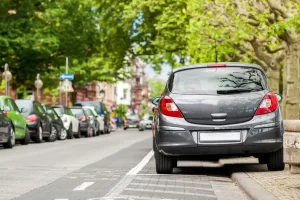Nearly 4,000 car dealers ask Biden to 'tap the brakes' on EV mandates

Nearly 4,000 new-car dealers from all over the United States have sent President Biden a letter to rebuke allegations that they’re to blame for low EV sales and to ask the White House to “tap the brakes on the unrealistic government electric vehicle mandate.” Published online, the letter argues that the real reason why sales of electric vehicles have stalled is that buyers don’t want them for a wide variety of reasons.
It’s not just the usual suspects: Most of the 3,882 dealers who signed the letter distribute brands that have invested a substantial amount of money into developing electric cars. Ford, Kia, Hyundai, Mercedes-Benz, and even Volvo dealers appear on the list. And, these stores are located all across the nation, including in big EV markets like California (336 dealers), Washington (62 dealers), and New York (167 dealers).
“No government agency, no think tank, and no polling firm knows more about the automobile customer than us. We talk to customers every day. As retail automotive dealerships, we are agnostic as to what we sell. Our business is to provide customers with vehicles that meet the needs of their budgets and lifestyles,” the letter states. What they’ve collectively found is that “the majority of customers” don’t want an EV.
The dealers provide several explanations. One is that customers are concerned about the price of electric cars, which cost significantly more than comparable gasoline-powered models. For context, the 2024 Hyundai Kona carries a base price of $25,435 including destination, while the 2023 Kona Electric starts at $34,885. Charging remains a problem as well: Many motorists don’t have a garage, don’t have easy access to public charging stations, or both, according to the letter. Driving range is an issue, too, especially in hot and/or cold climates, and a lot of drivers find filling up a fuel tank in a few minutes far more convenient than waiting for a battery pack to charge. As for truck shoppers, dealers argue that they’re “put off by the dramatic loss of range while towing” — Ford’s F-150 Lightning loses about 25% of its range when towing.
Last but definitely not least, the letter points out that “many people just want to make their own choice about what vehicle is right for them.”
According to The Wall Street Journal, new-car dealers (including those who didn’t sign the letter) are sitting on a 103-day supply of EVs, versus a 56-day supply of all cars regardless of fuel type. Selling an EV takes about 65 days, or twice as long as a gasoline-burning model.
Ultimately, “the supply of unsold BEVs is surging, as they are not selling nearly as fast as they are arriving at our dealerships — even with deep price cuts, manufacturer incentives, and generous government incentives.”
The letter stresses that the dealers aren’t against electric cars; they’re simply pointing out that, from their perspective, the EV mandate looks unrealistic. They also note that the appeal of an electric car could increase over time as battery technology improves, costs come down, and the charging infrastructure becomes more reliable.



